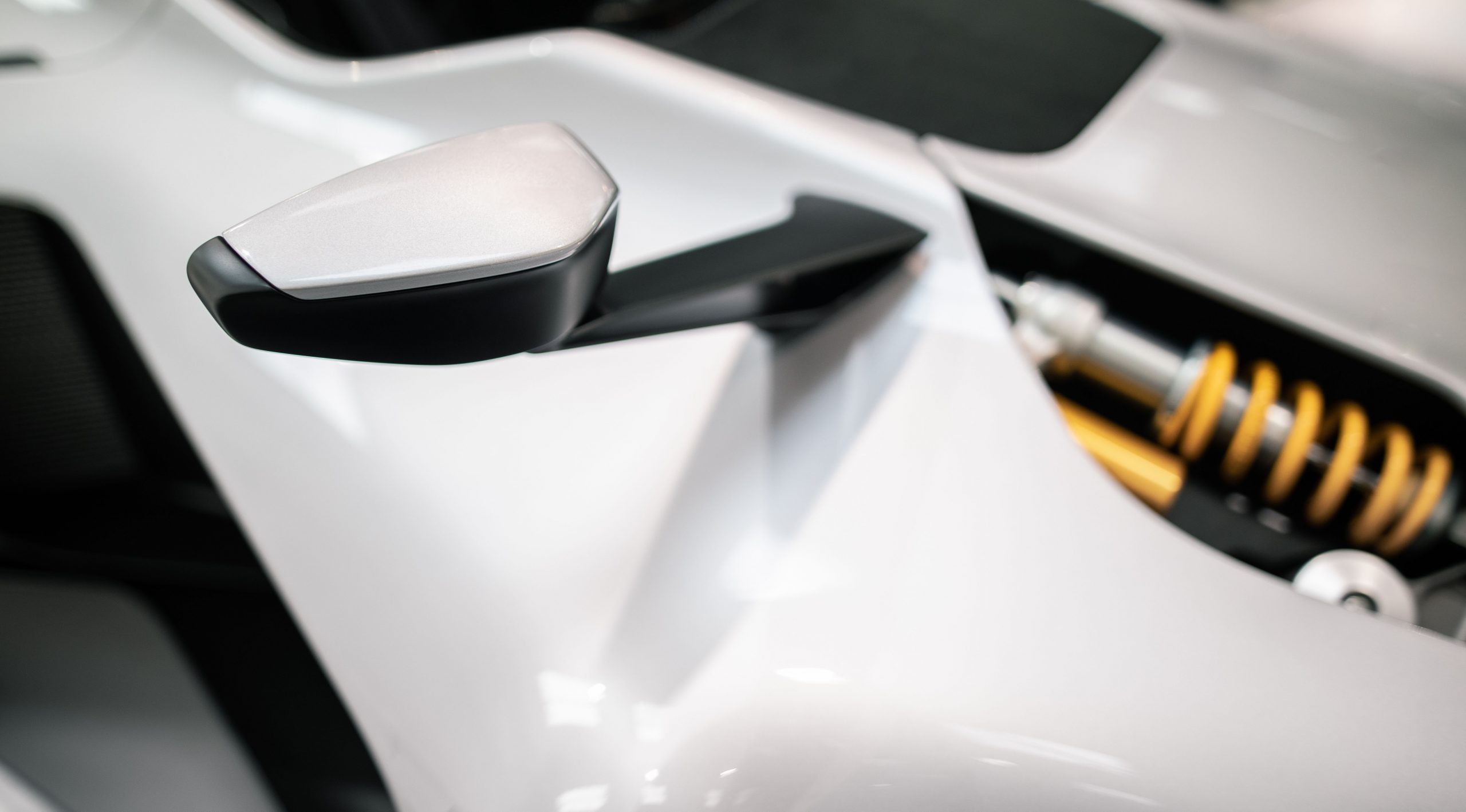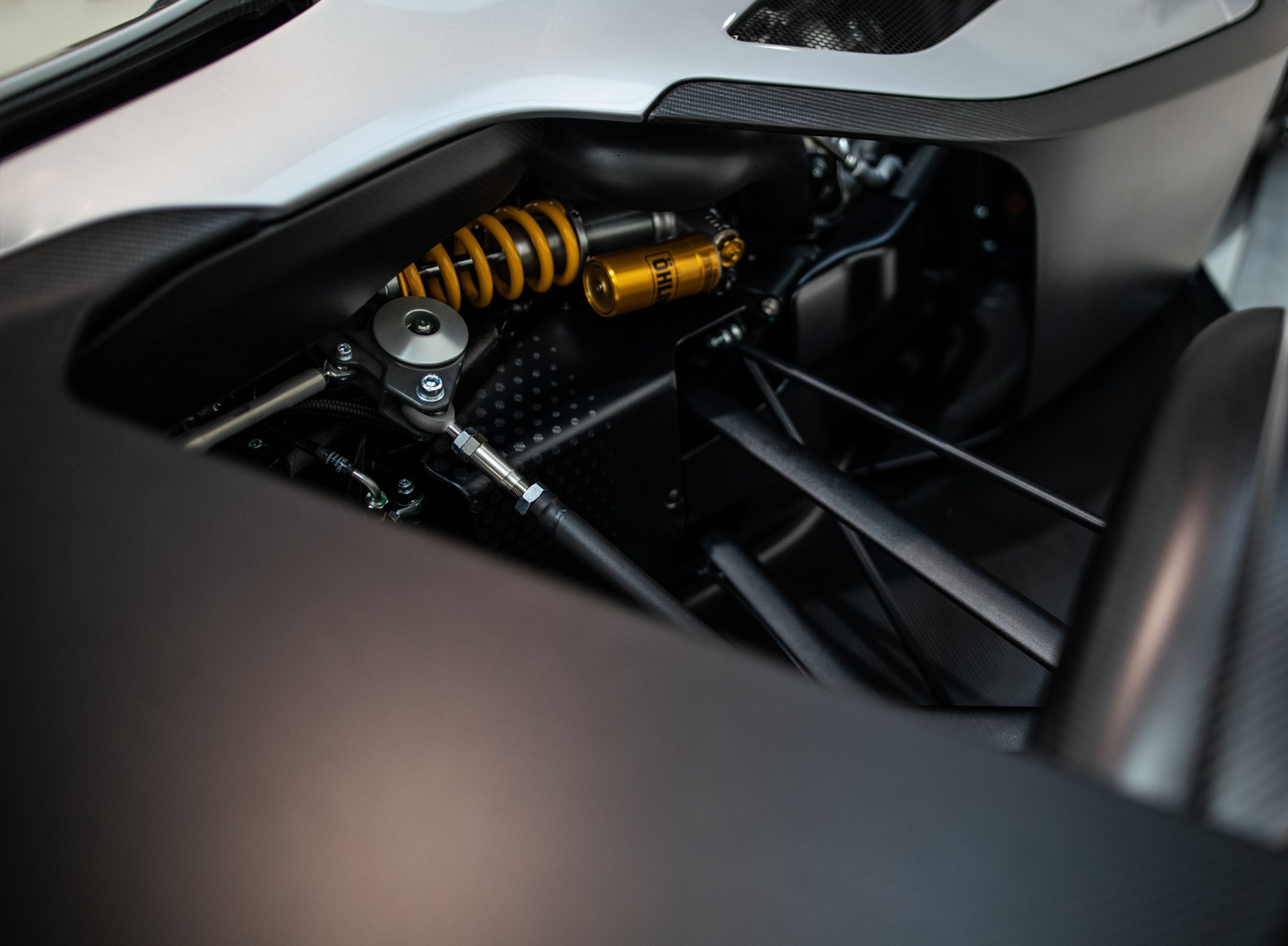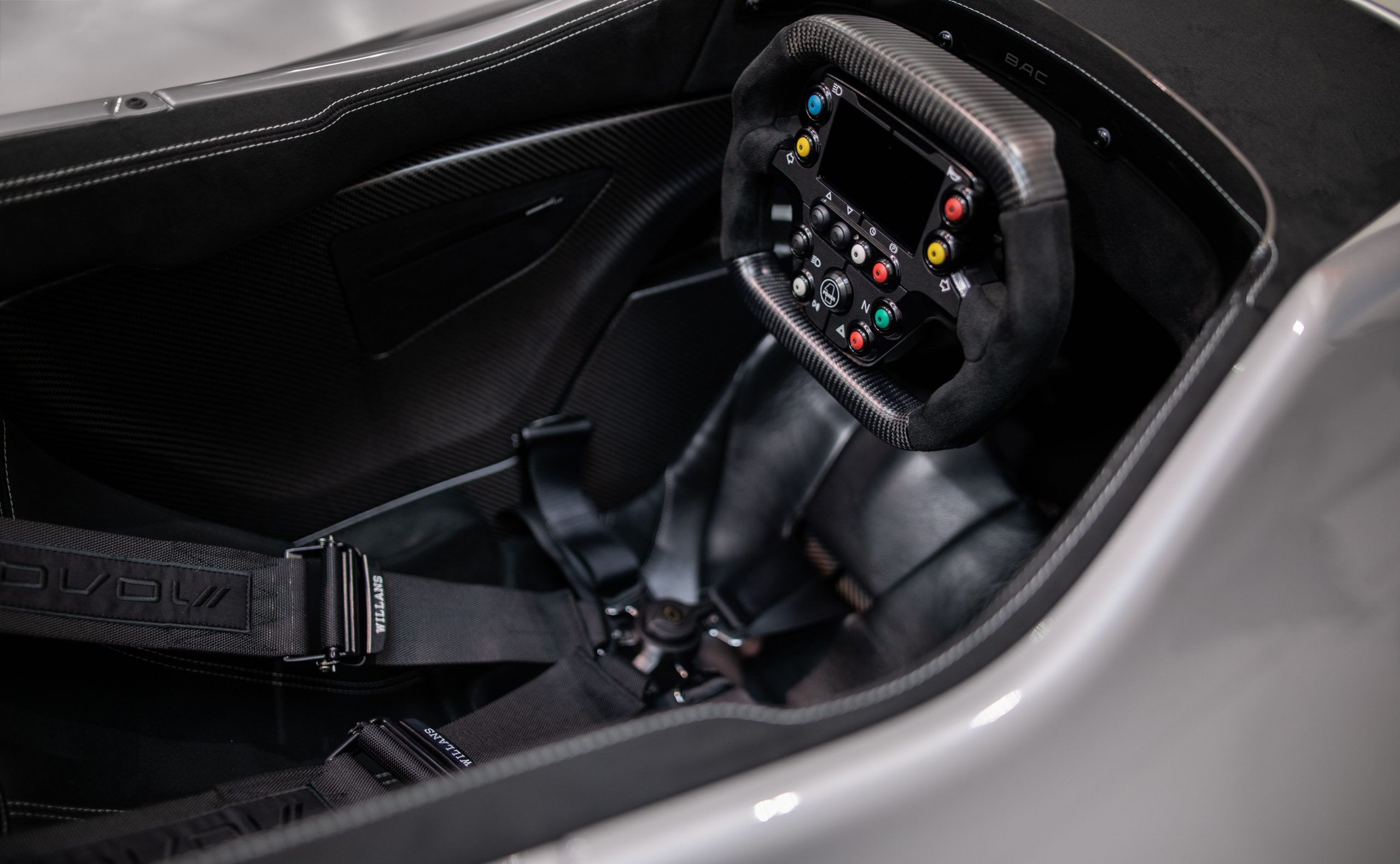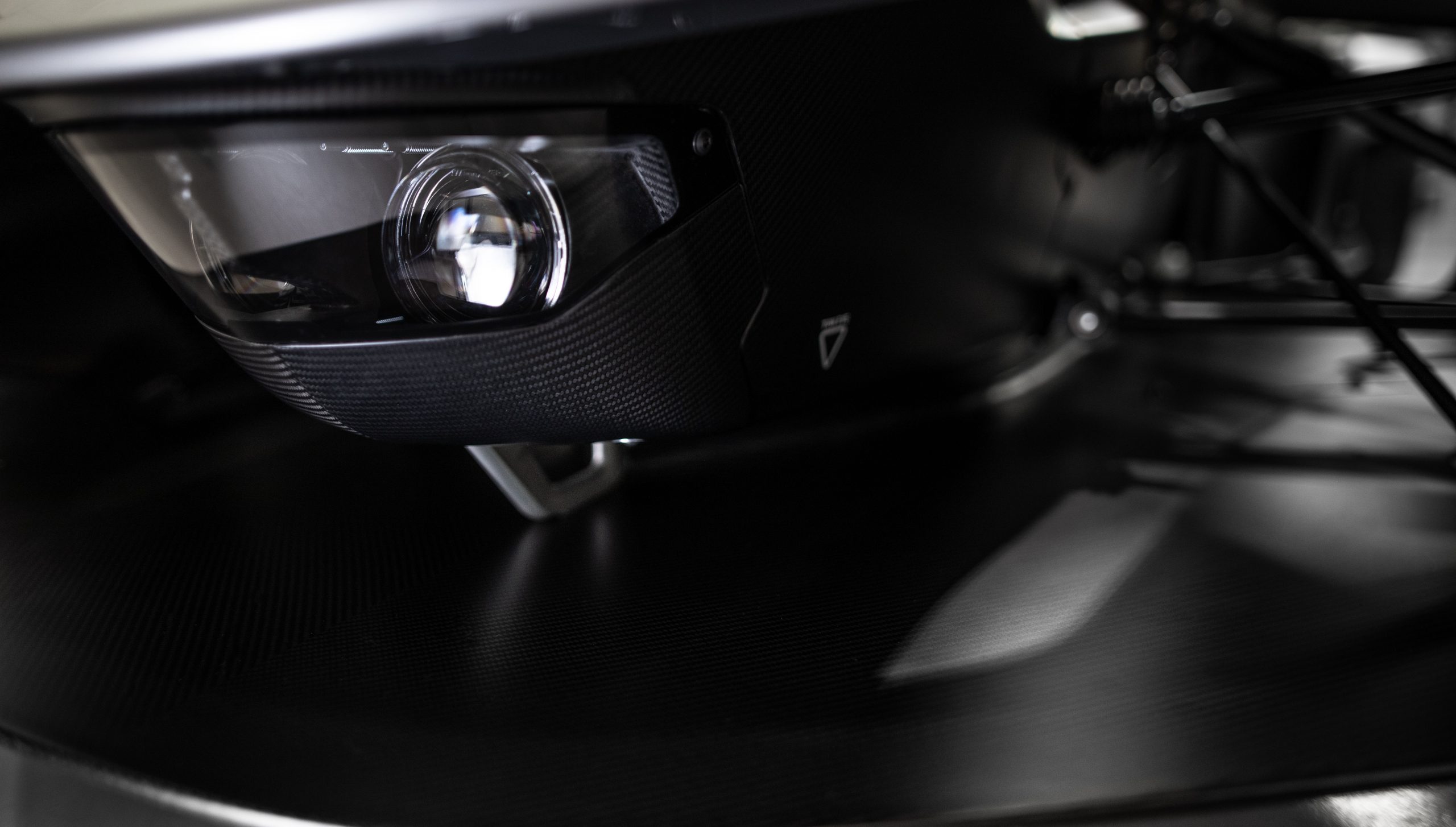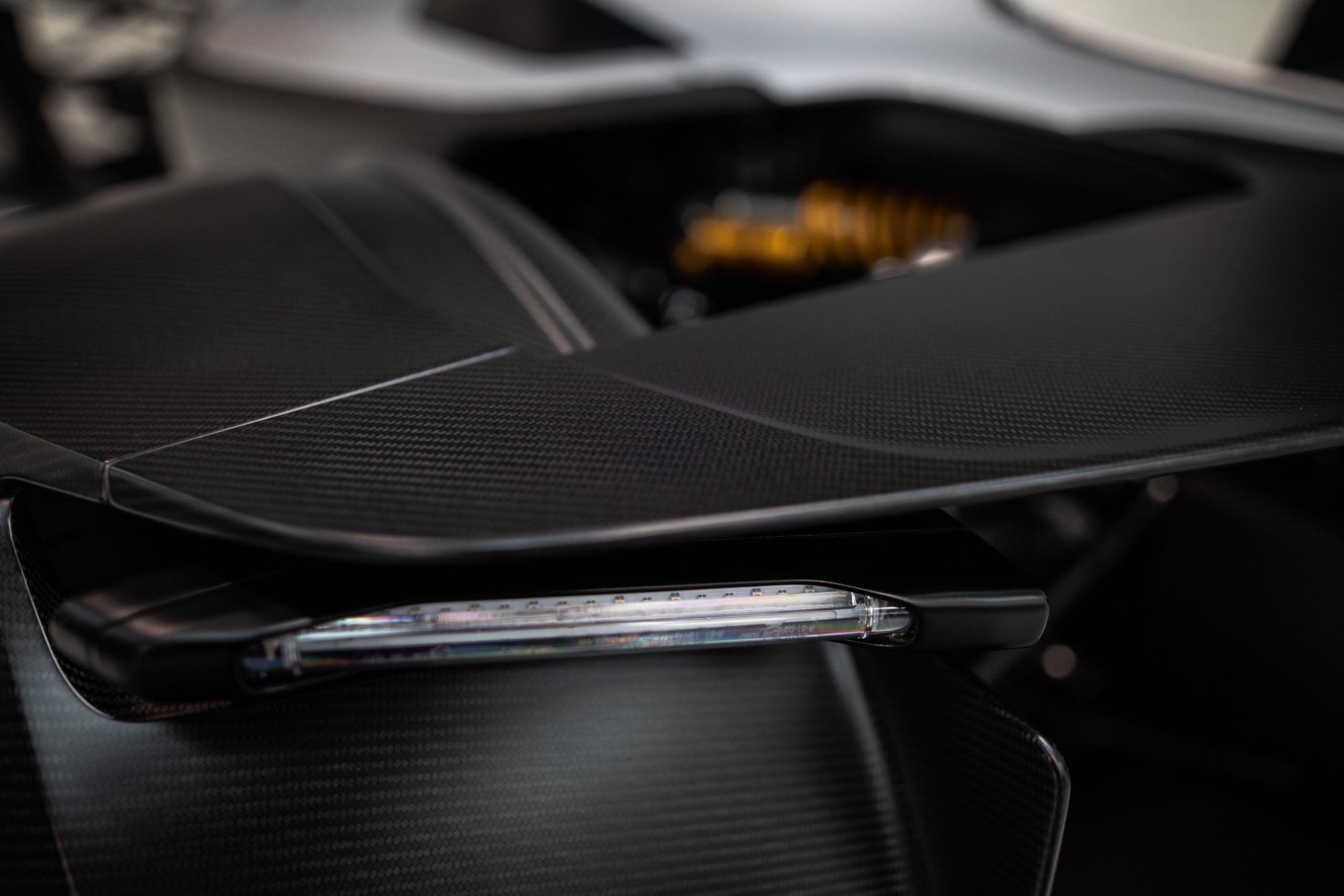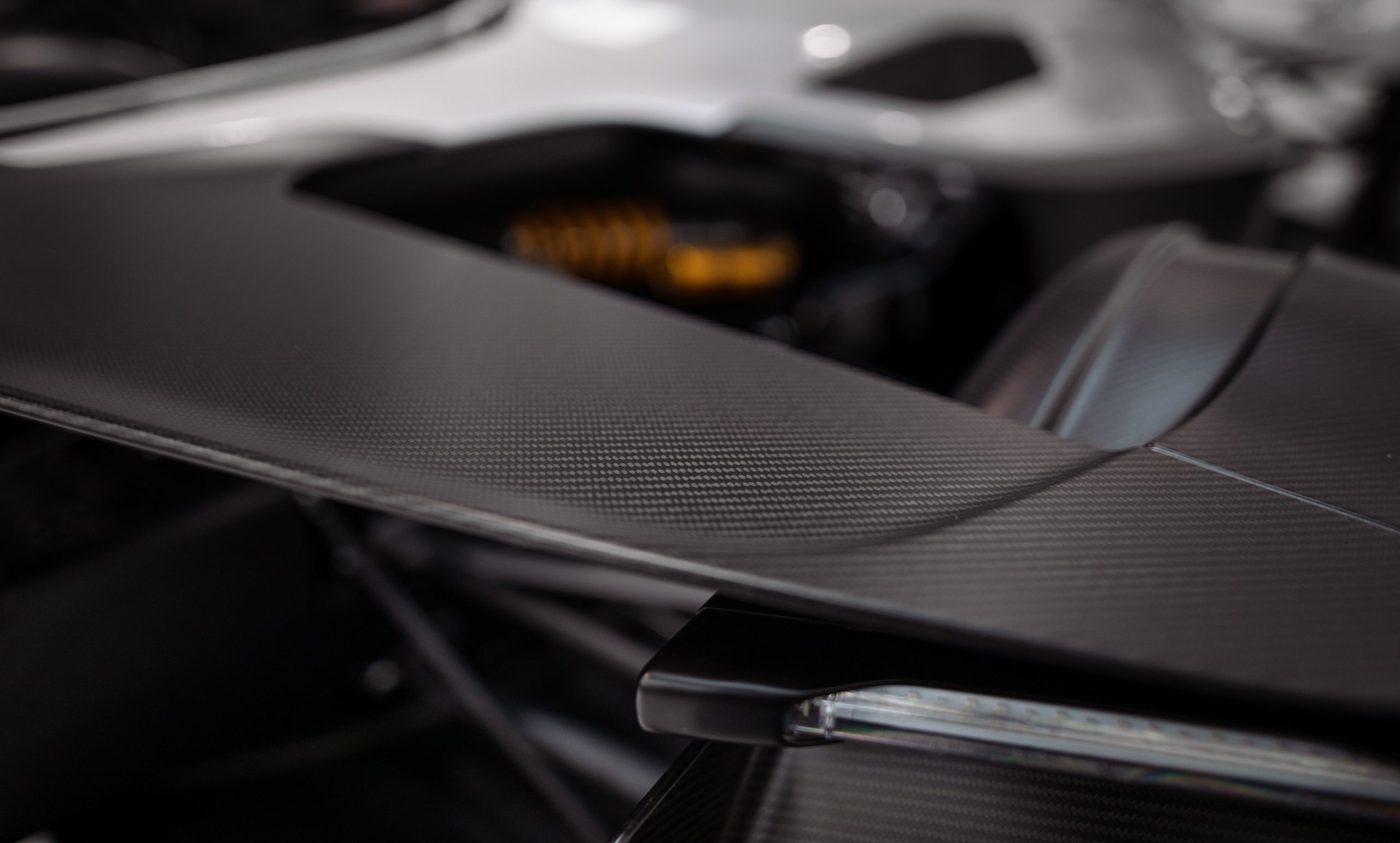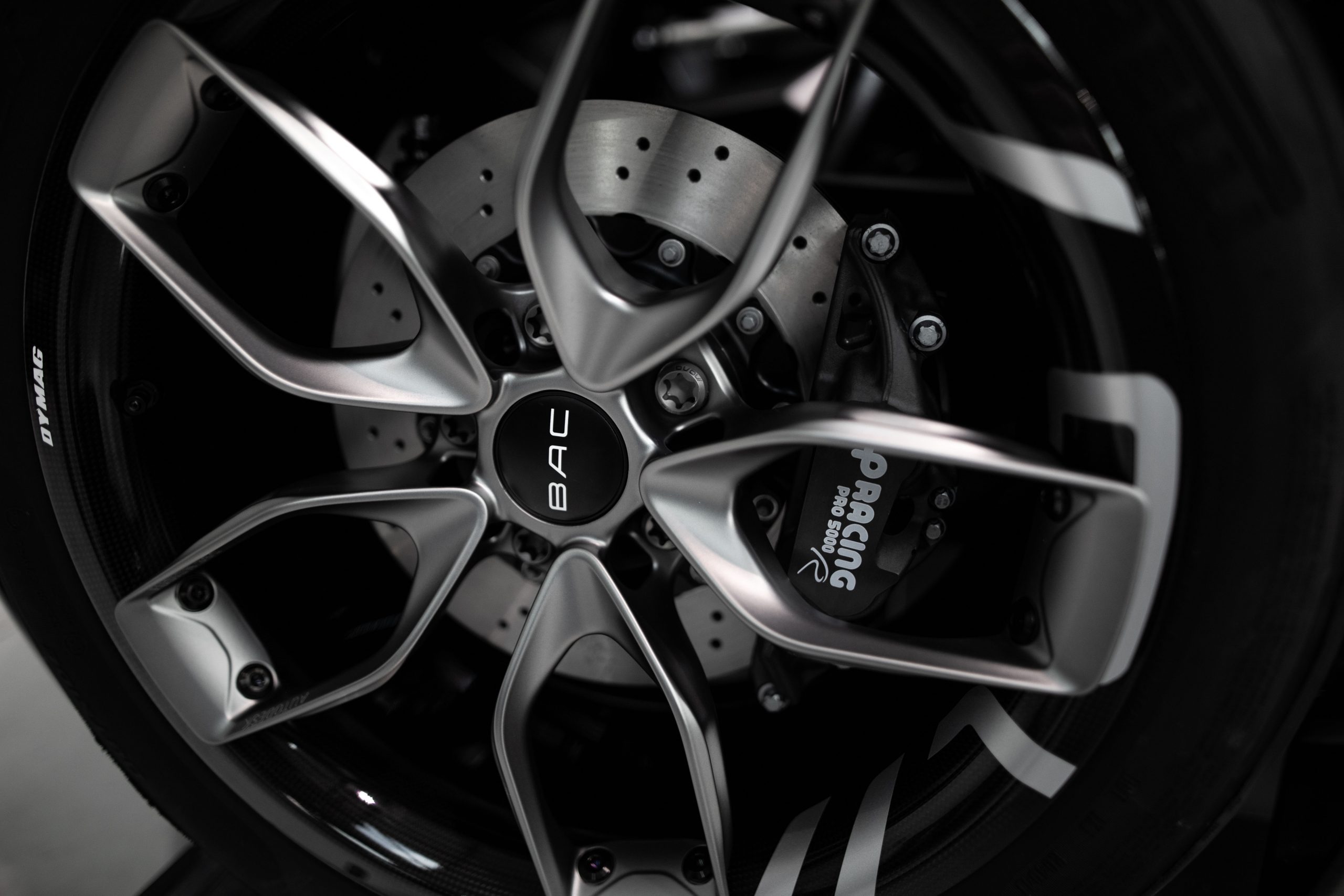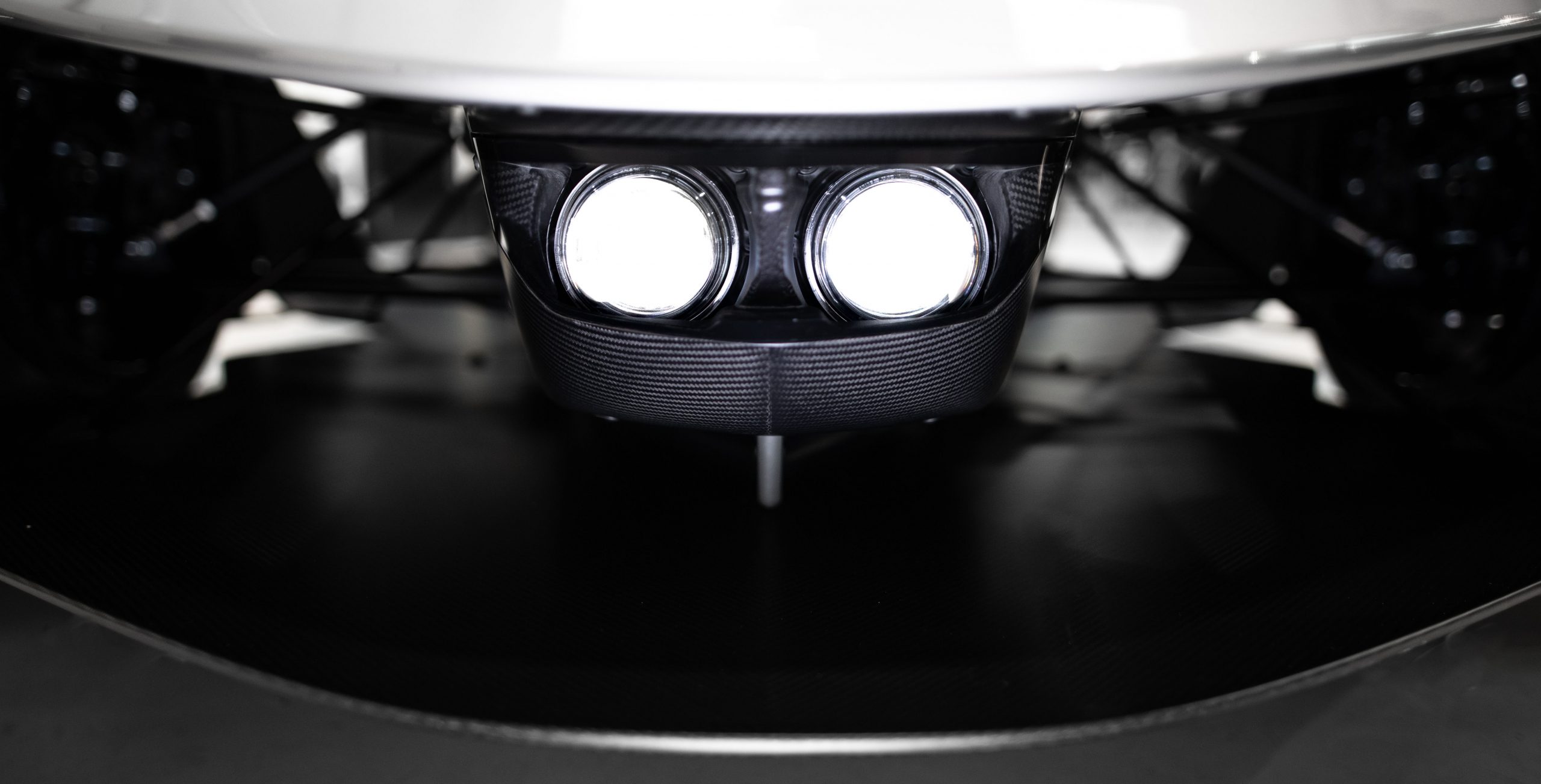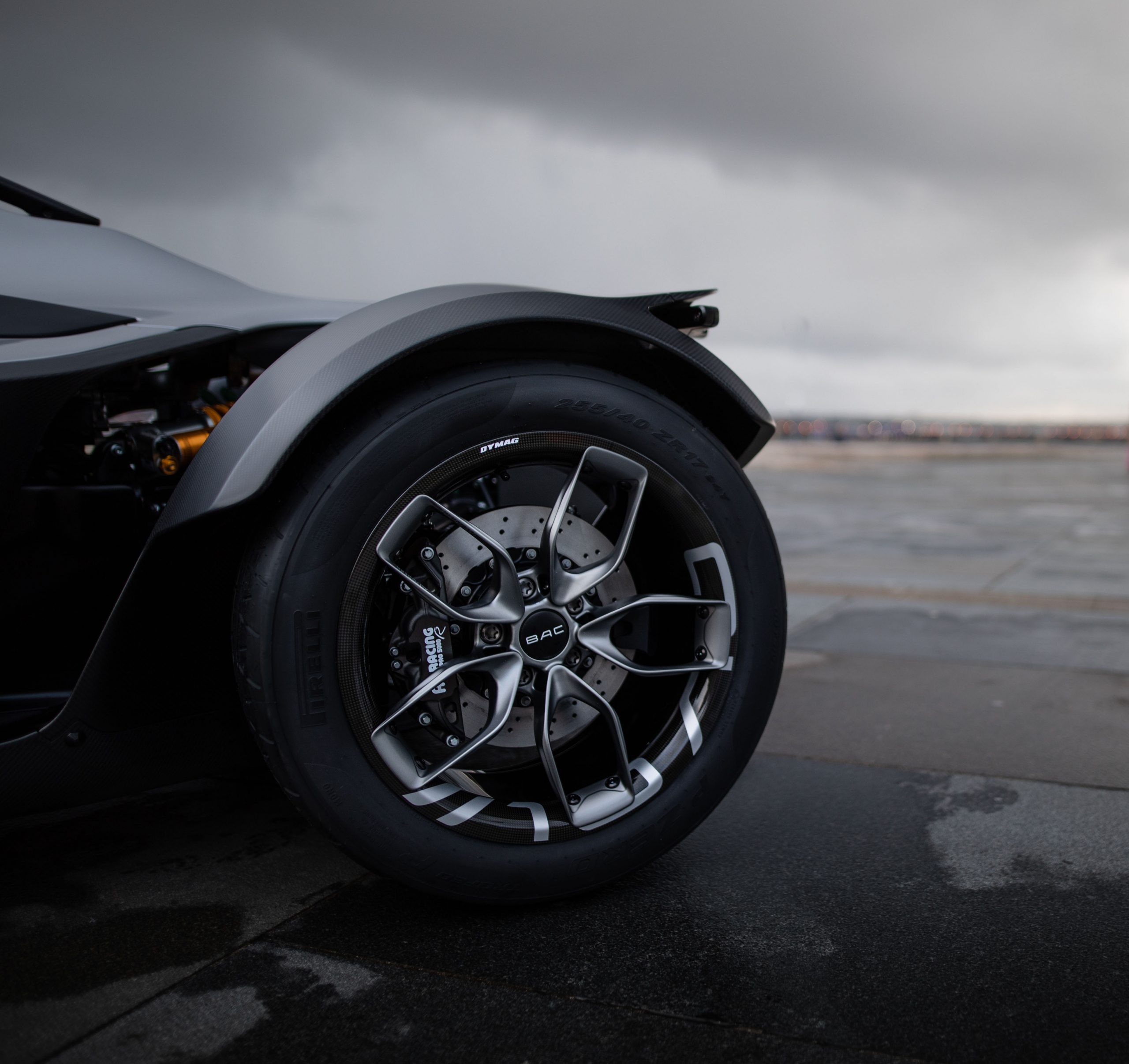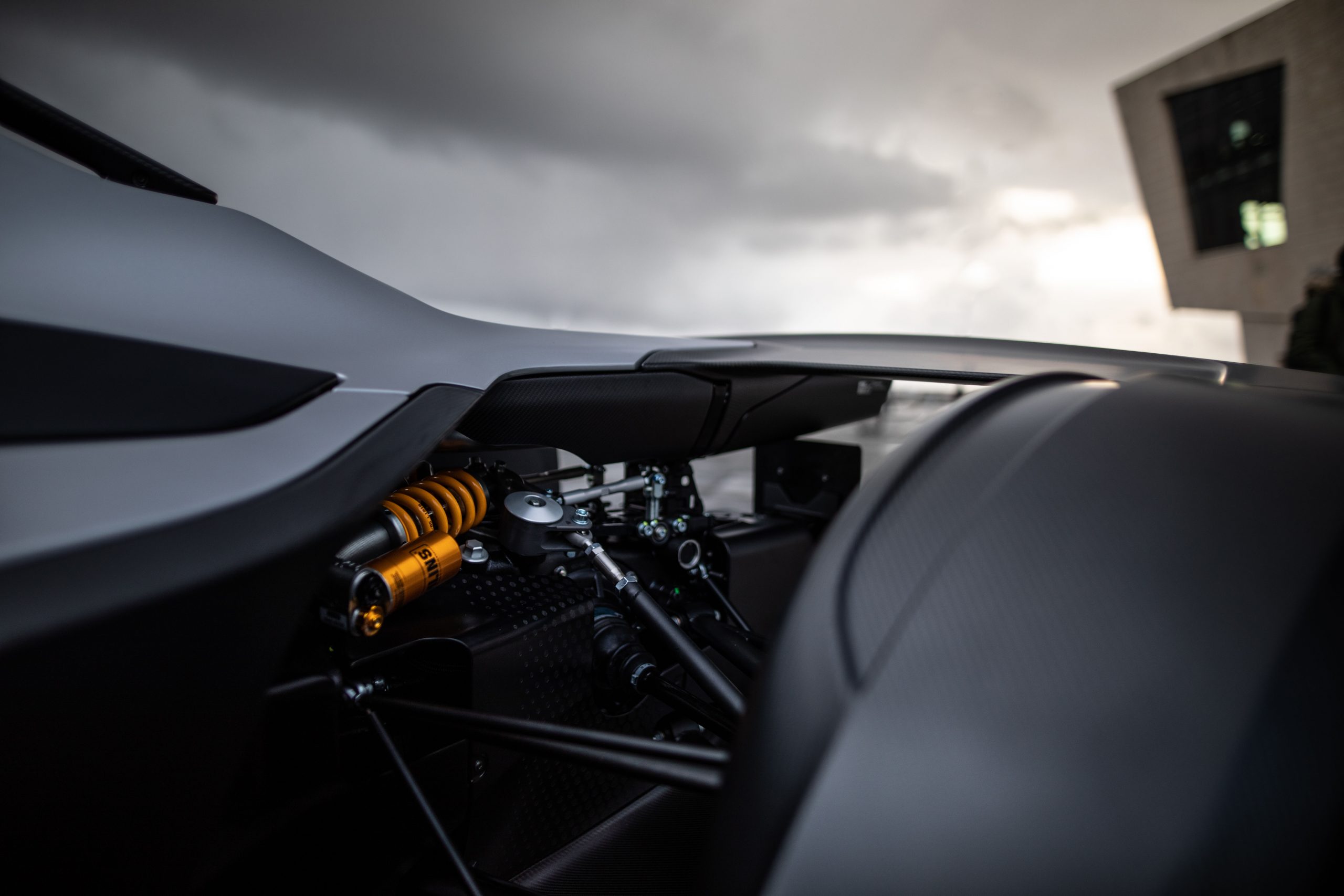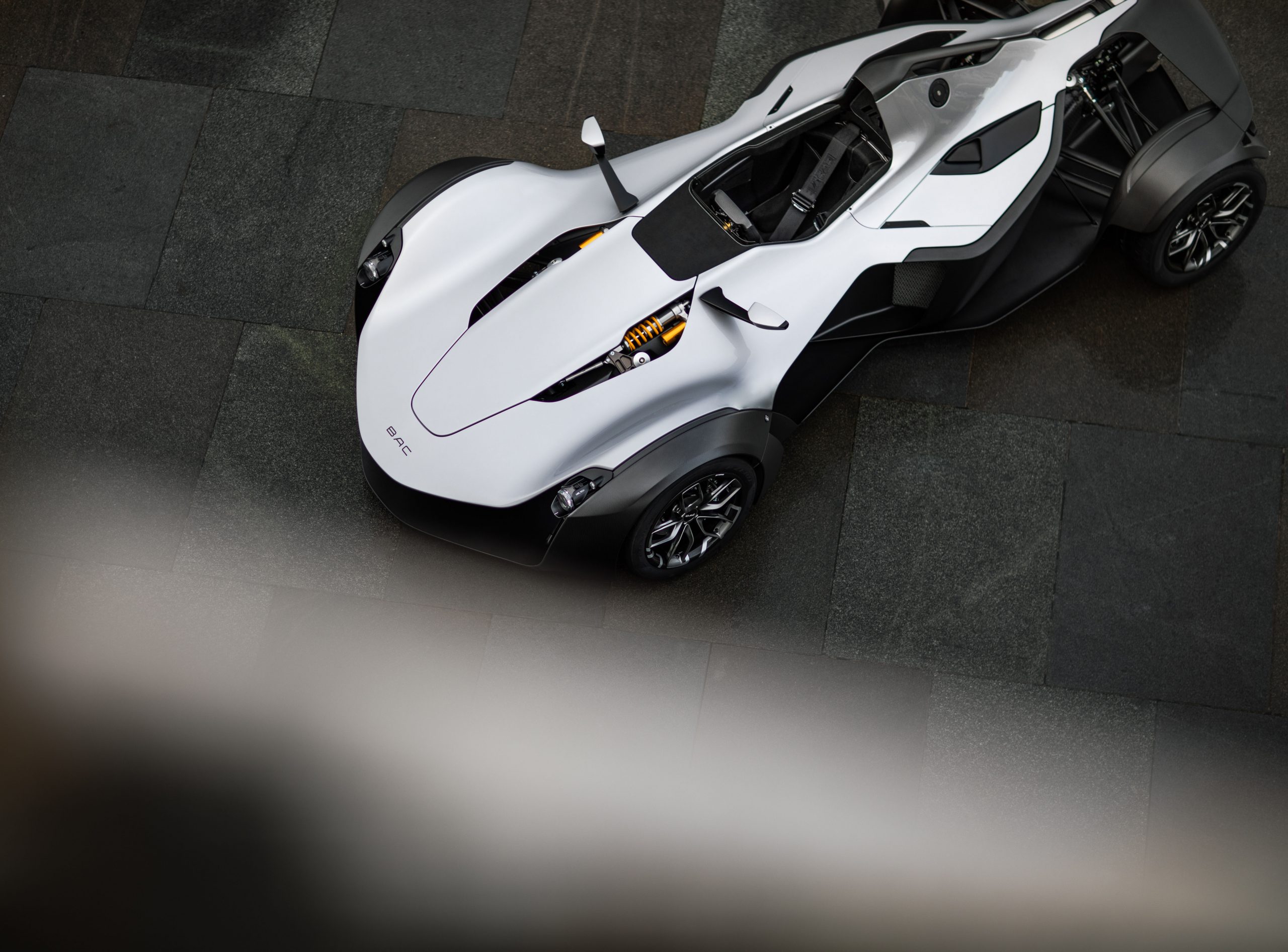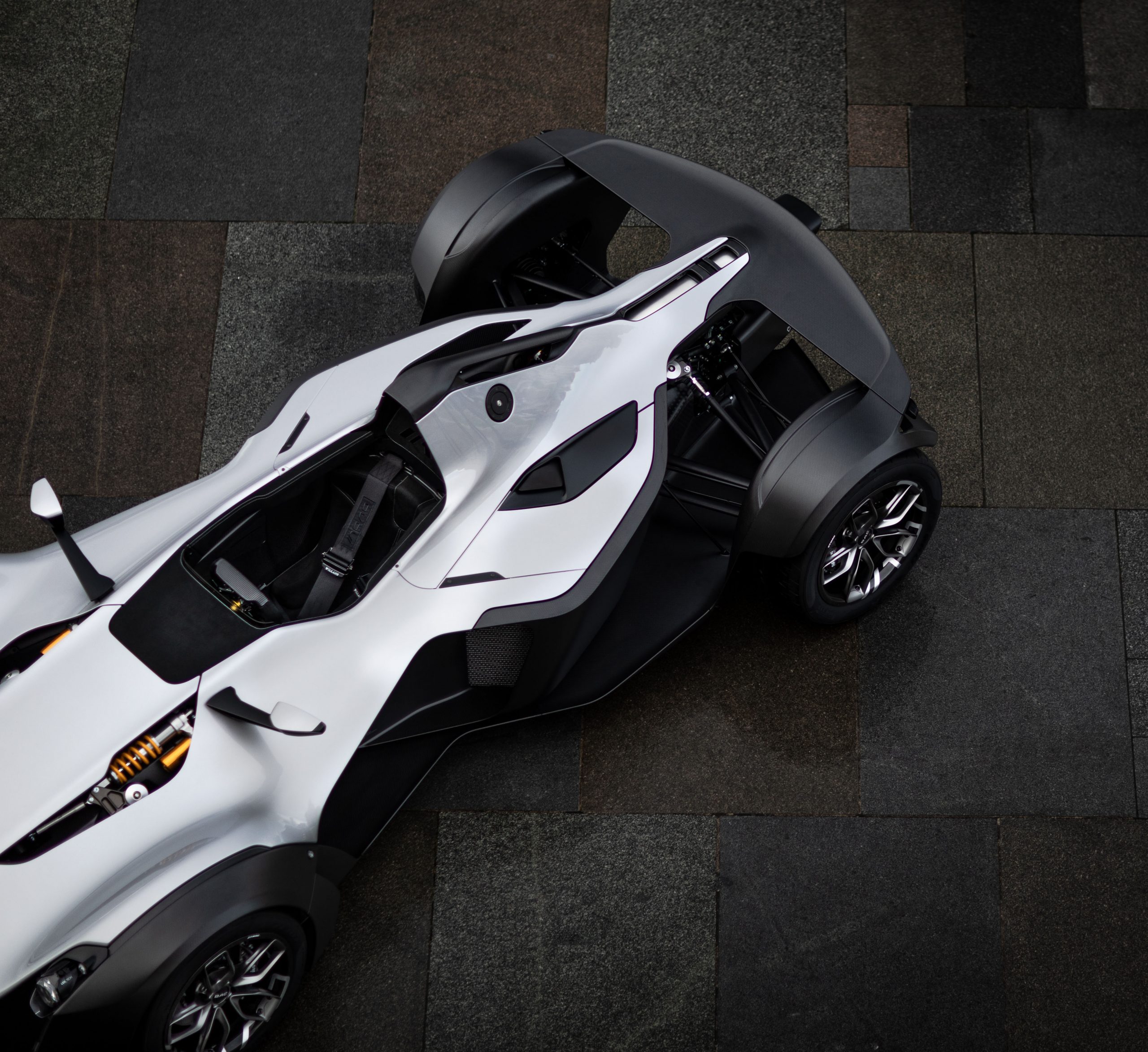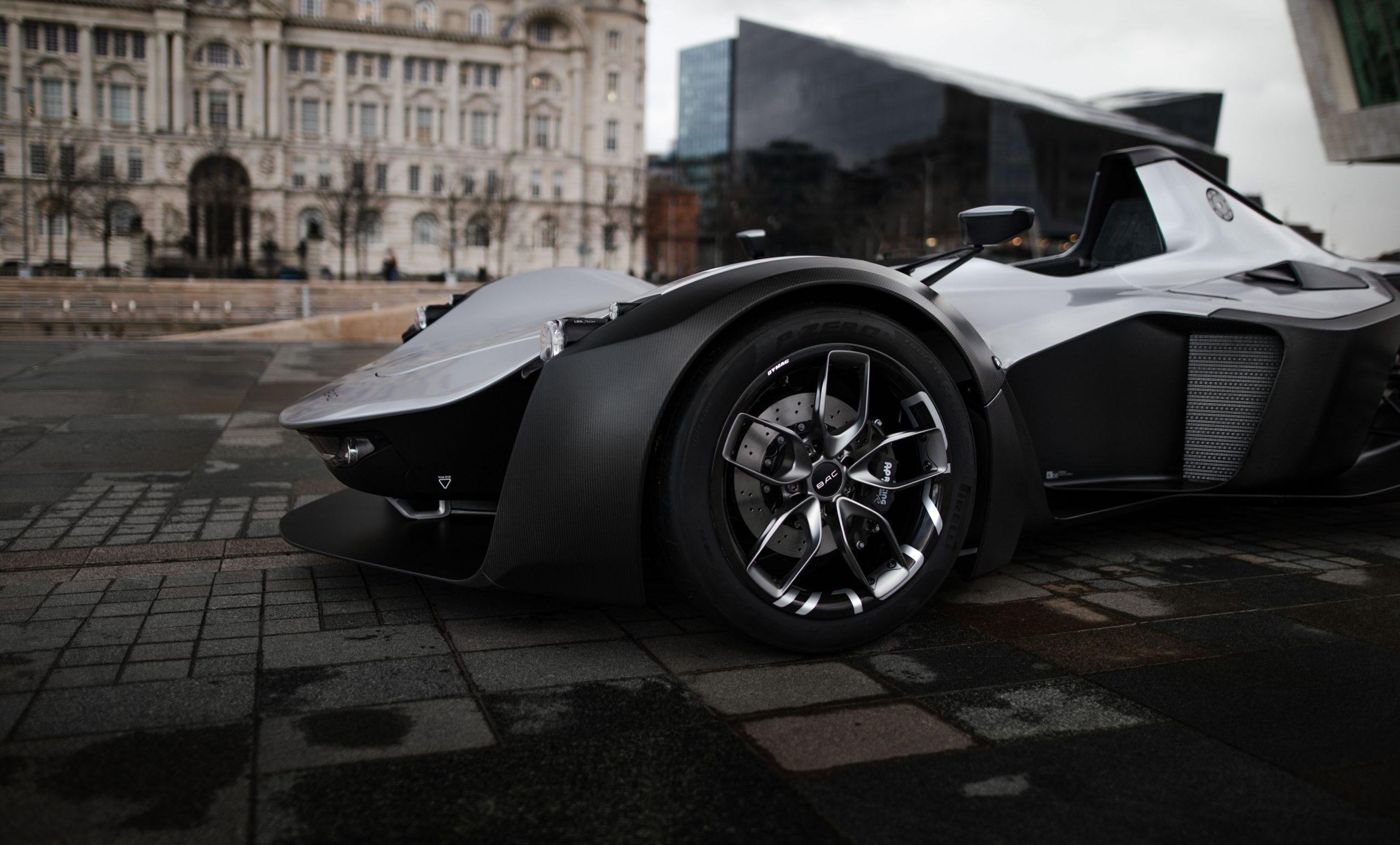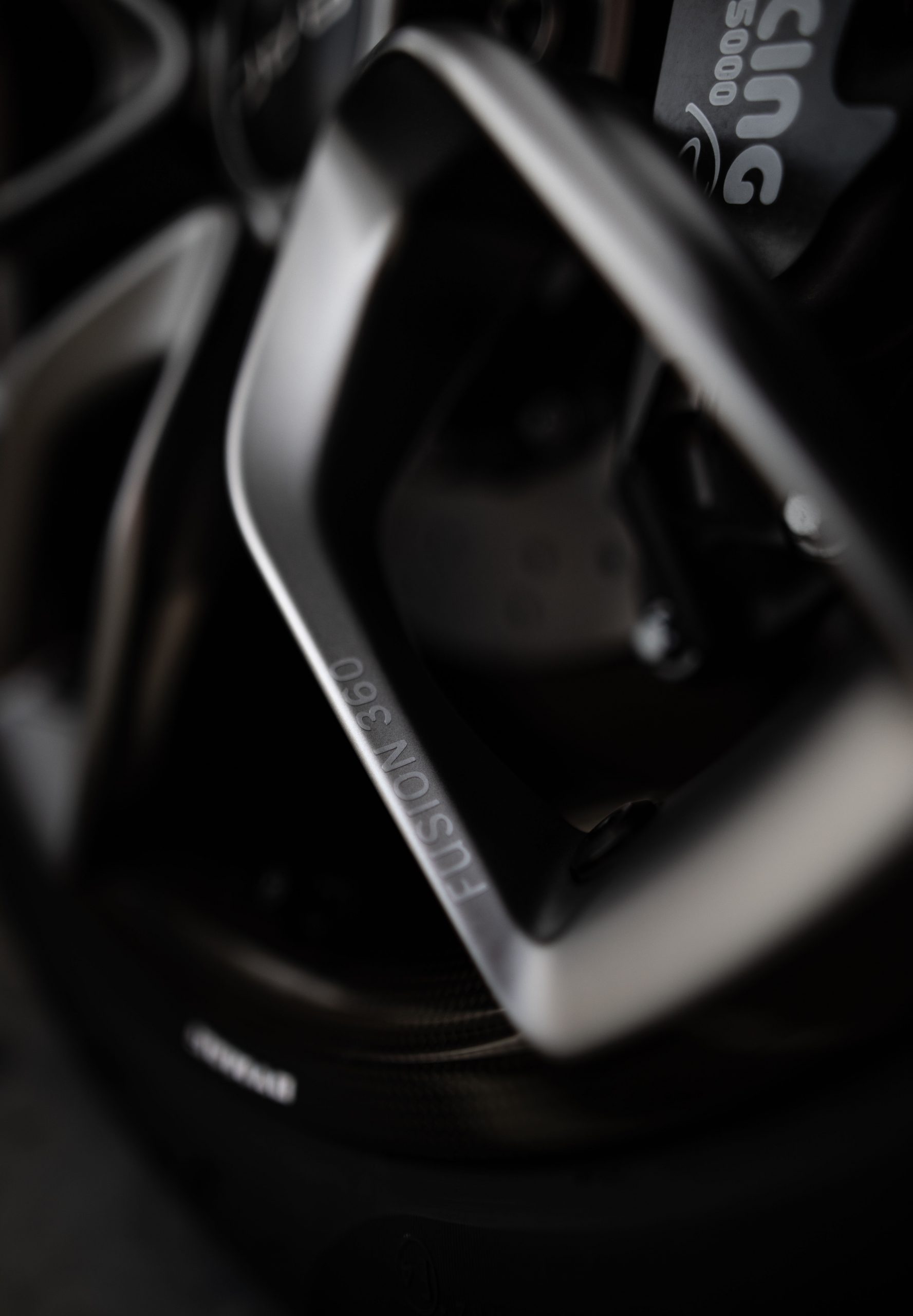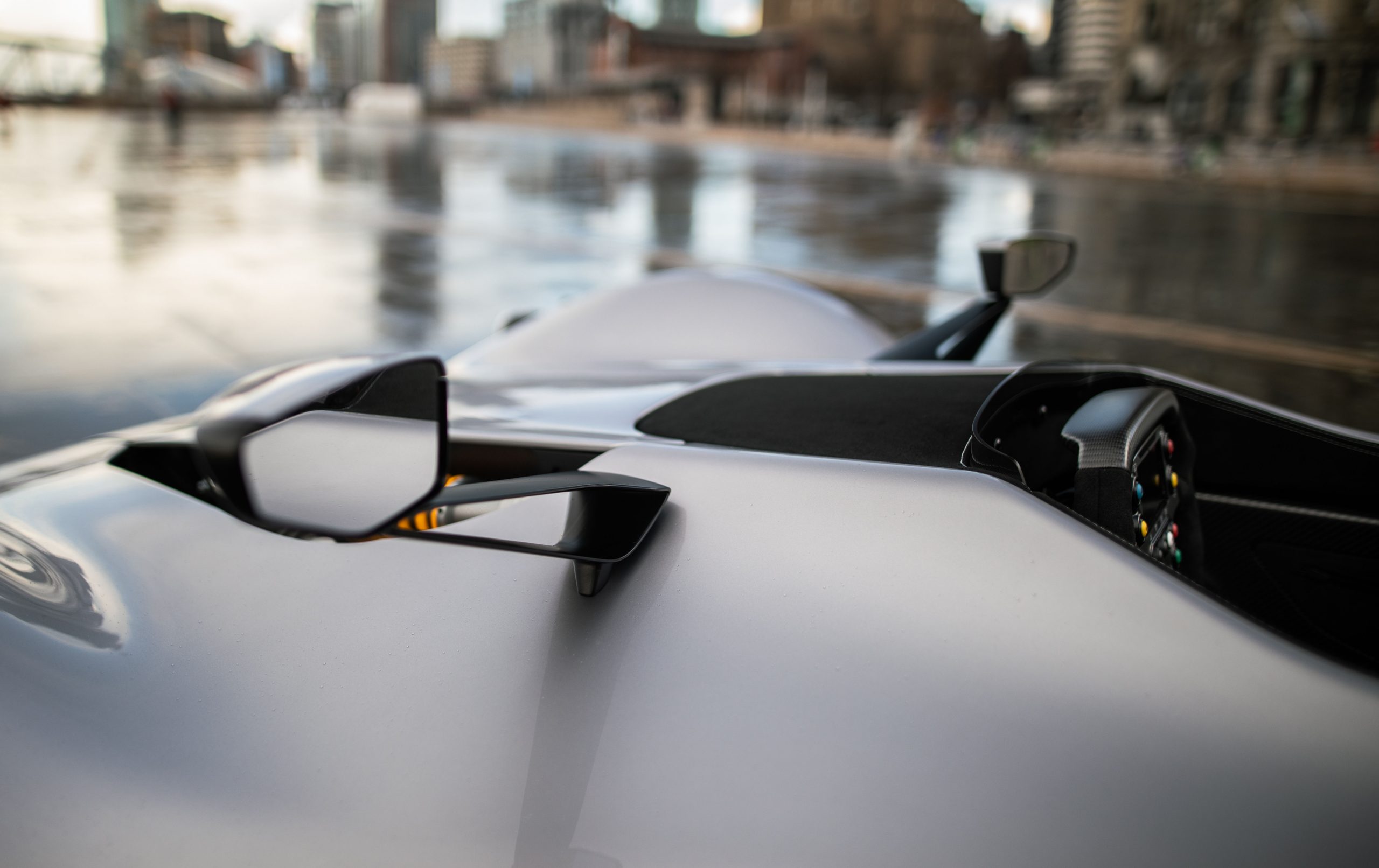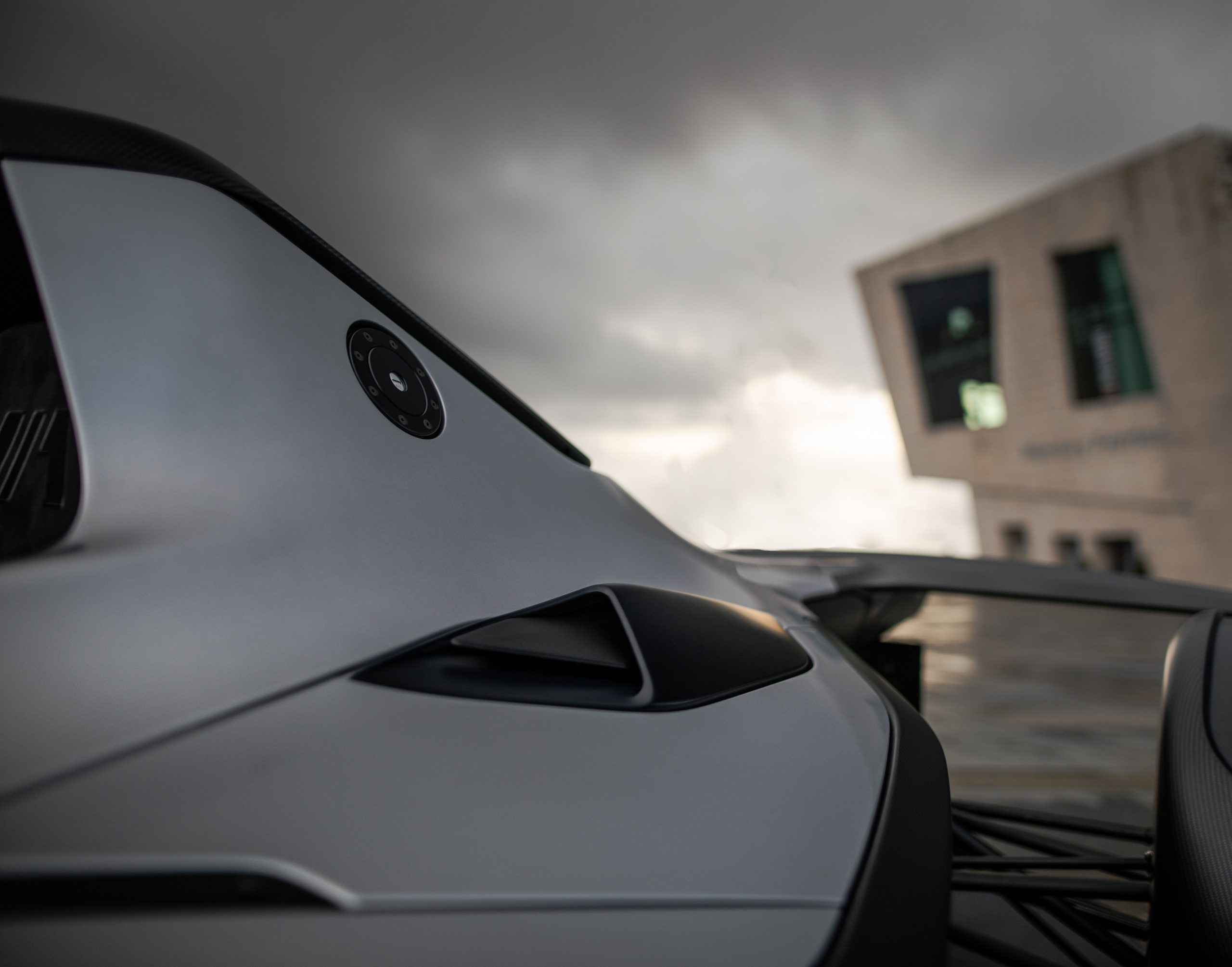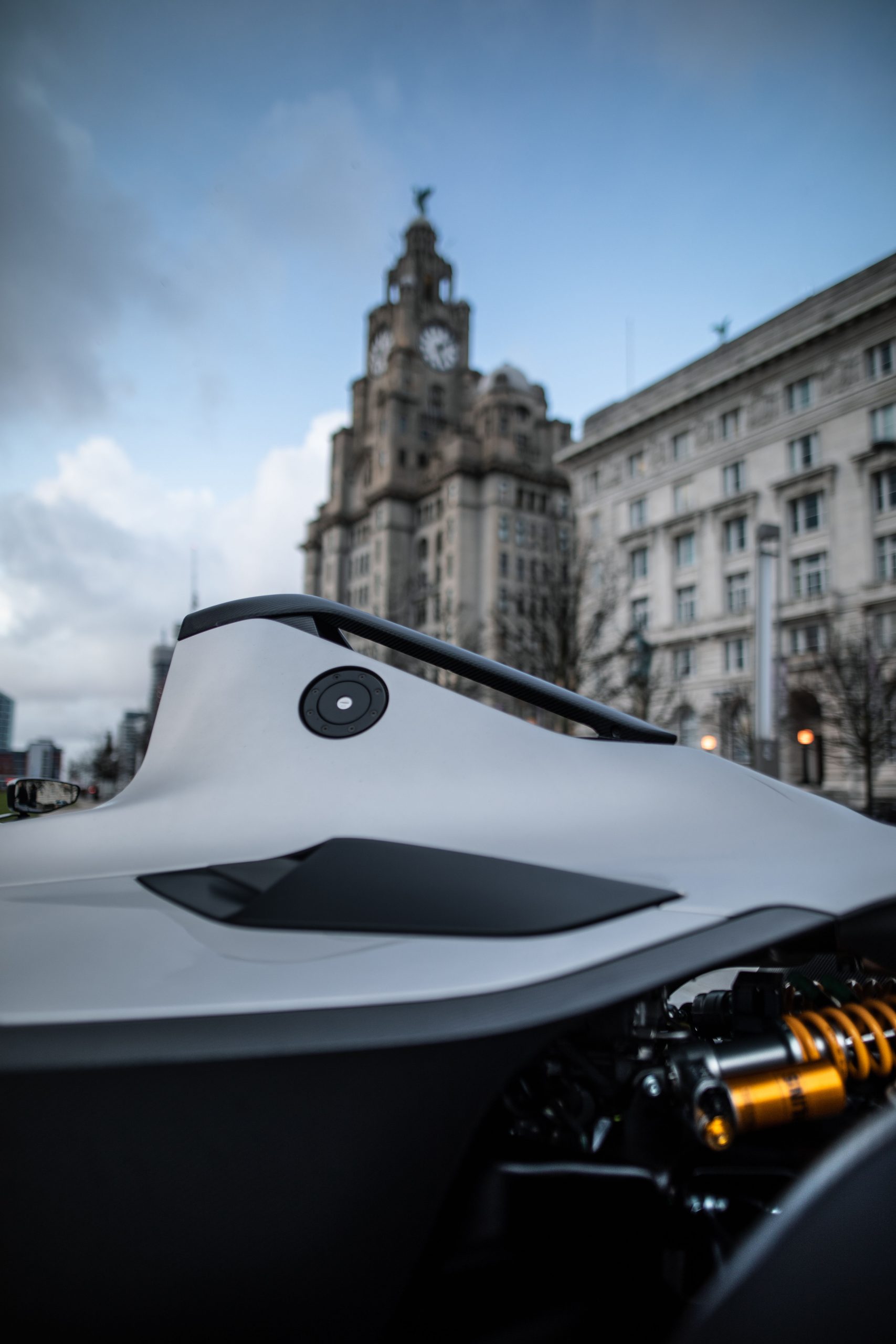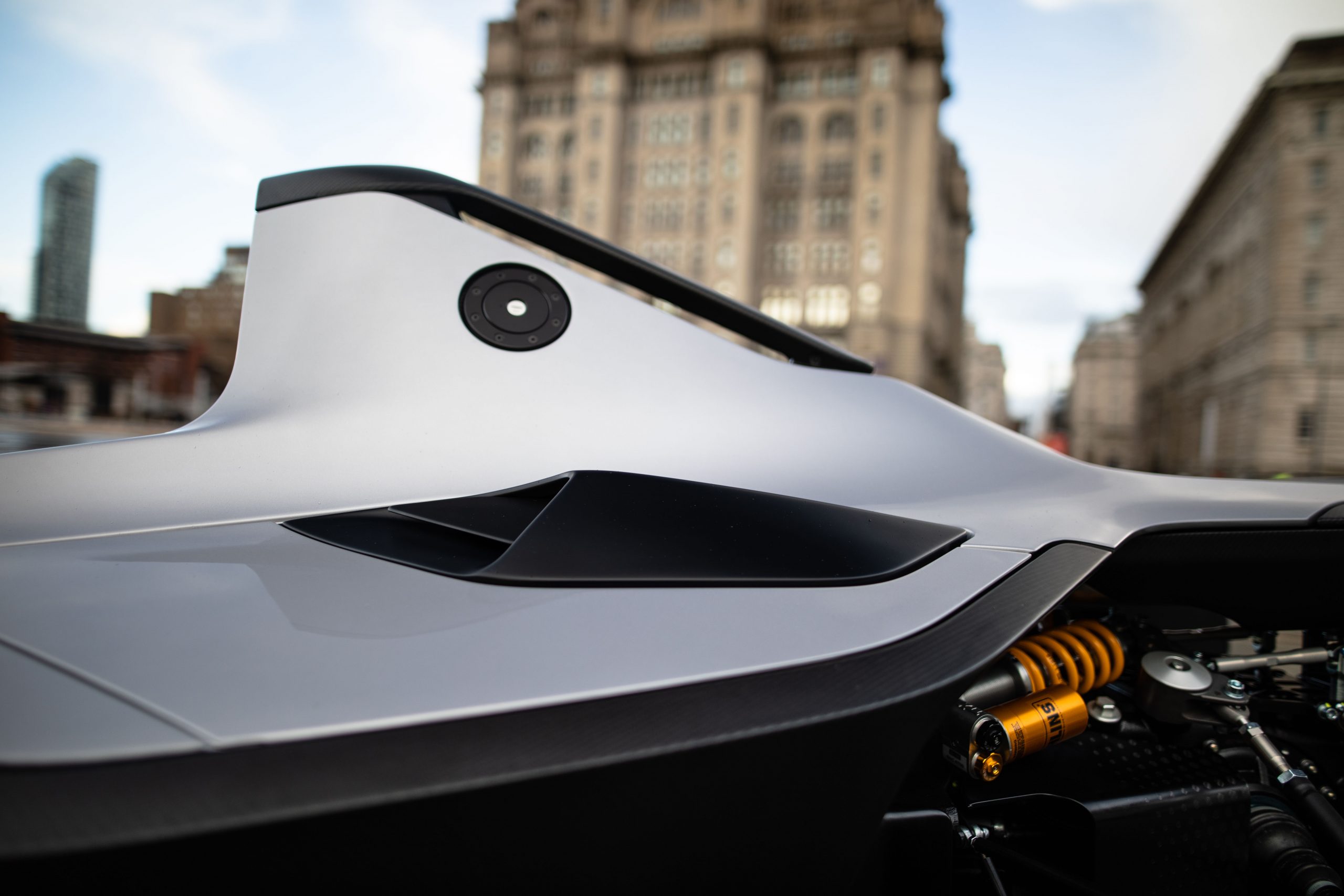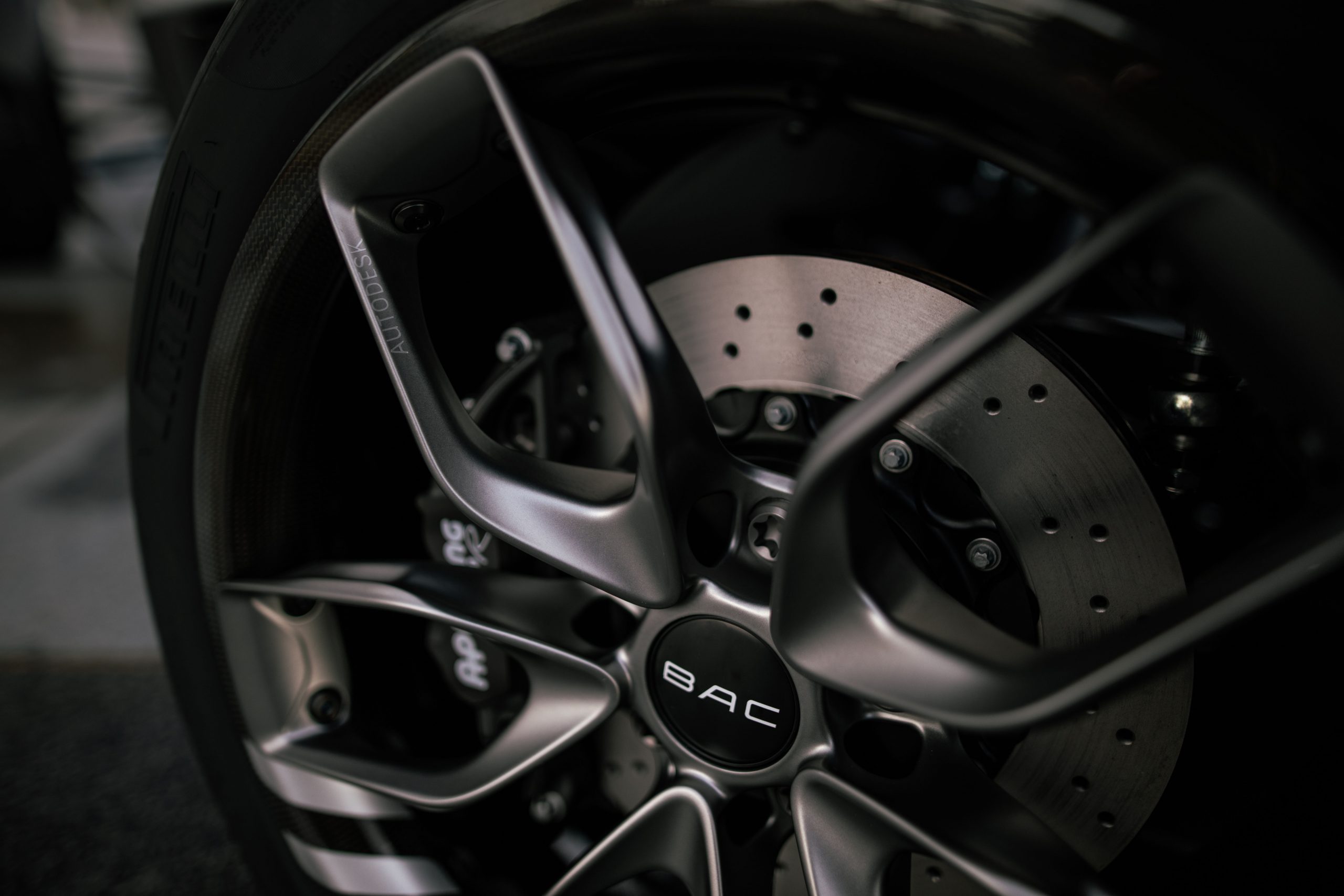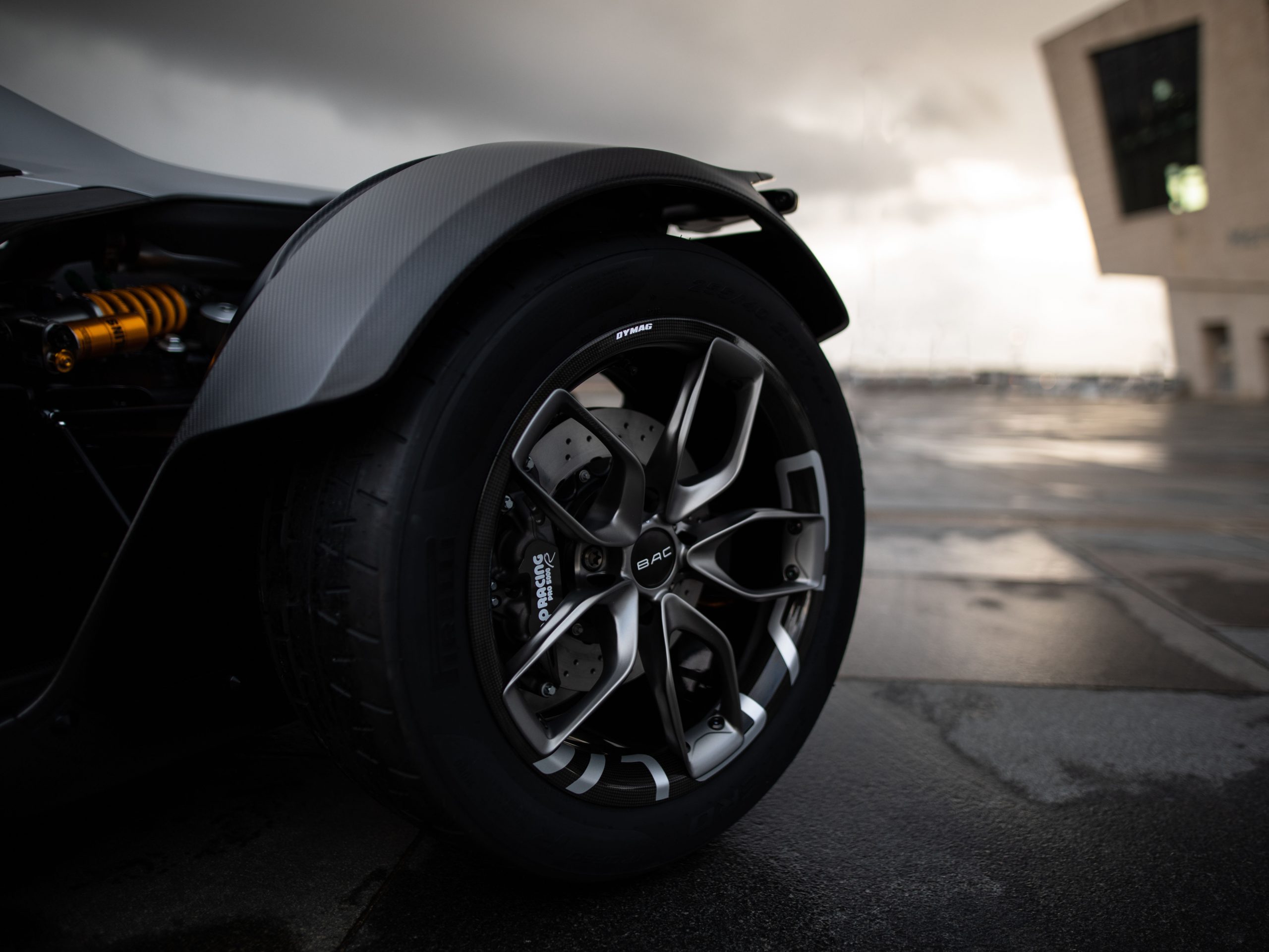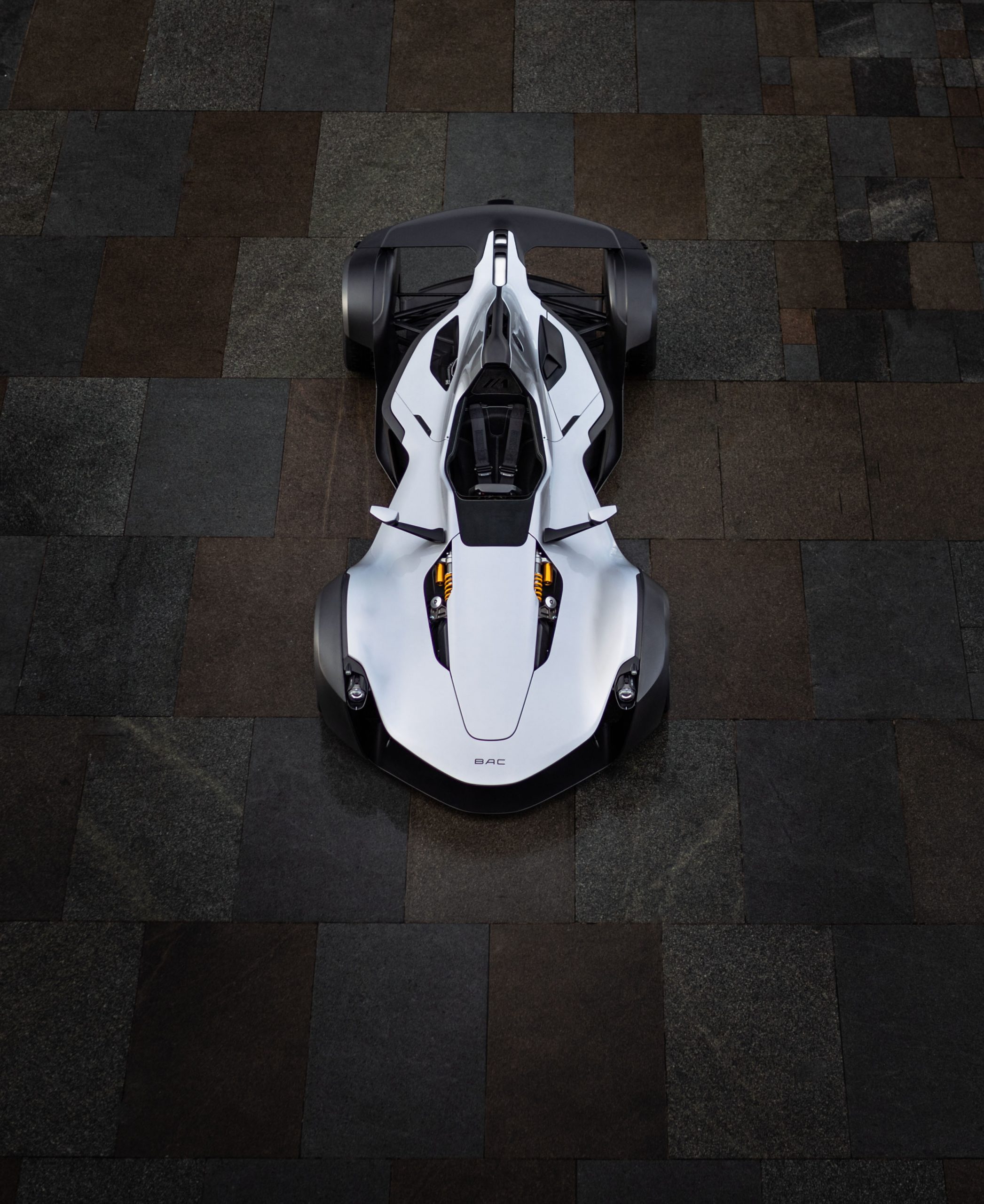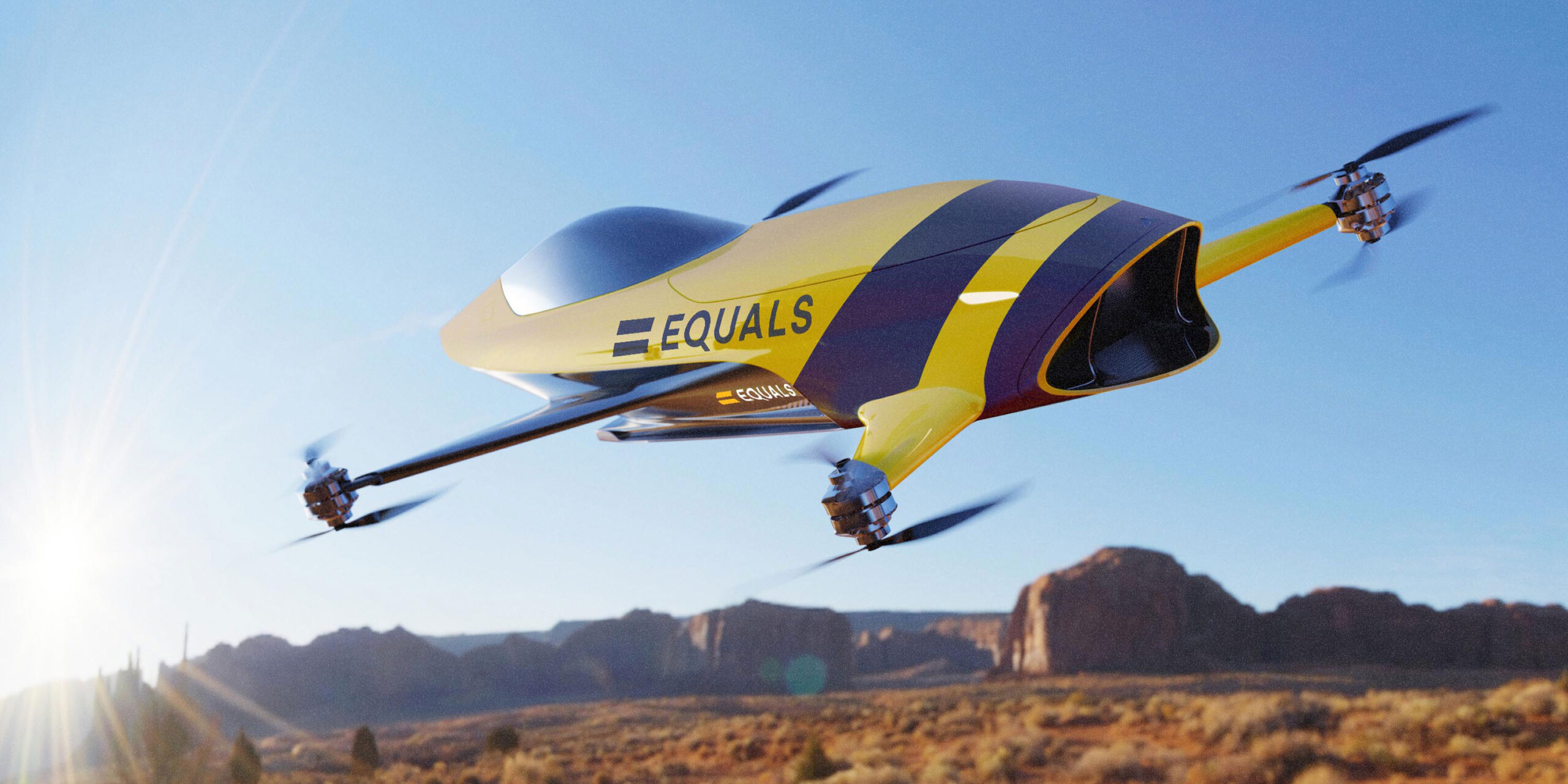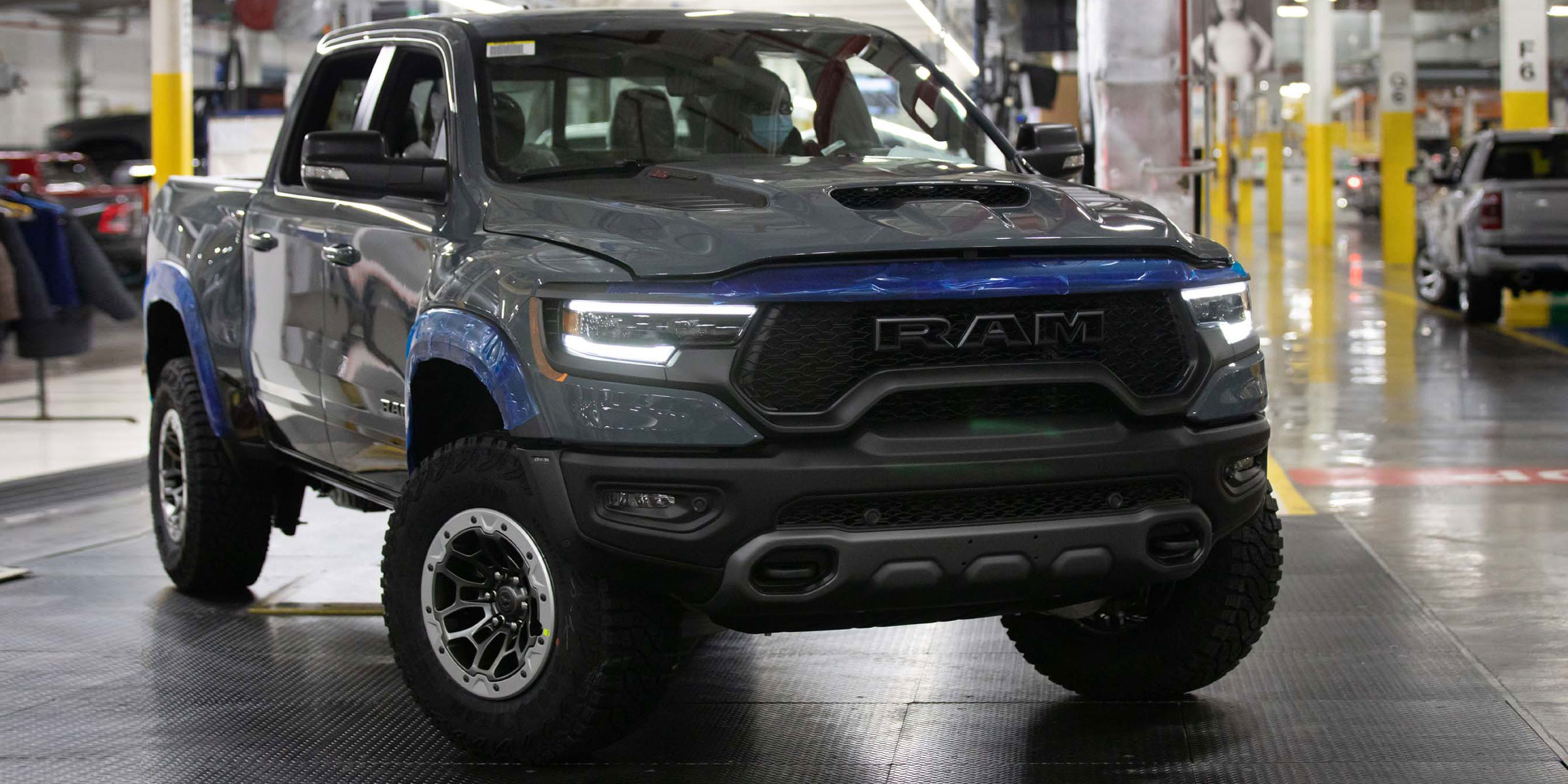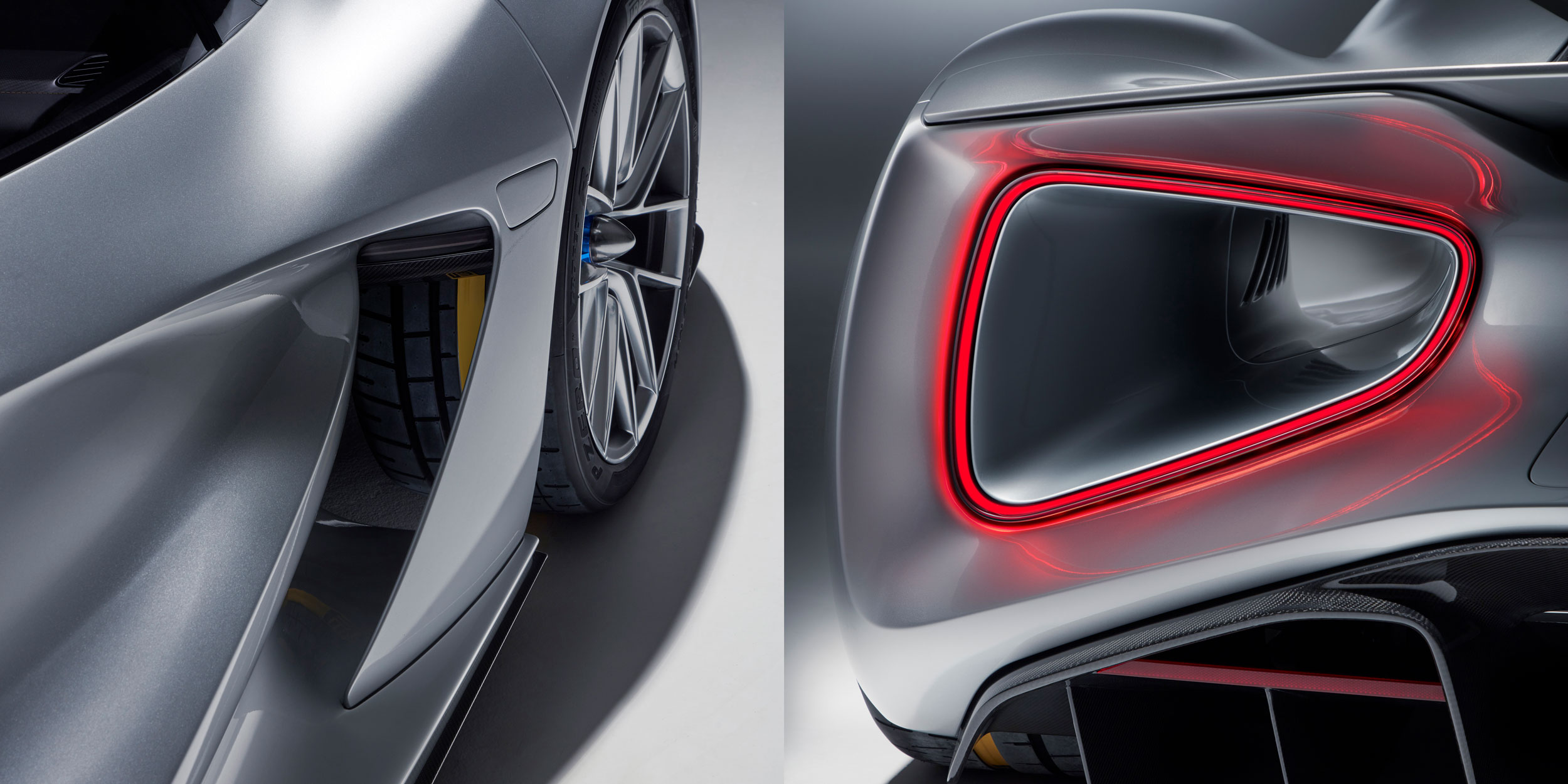BAC launches turbocharged new-generation Mono: More power, tech, lighter weight and road-legal across Europe

Words and photos courtesy of Briggs Automotive Company
- BAC has officially launched the new-generation BAC Mono: a higher-performance, lighter, more advanced single-seater supercar that’s fully road-legal across continental Europe and beyond
- New Mono sports the stunning new generation of Mono design DNA first seen on the BAC Mono R, with reductions in visual mass across the body, lower height and less frontal area creating a sleeker look
- New 2.3-litre, four-cylinder in-line 332bhp turbocharged engine is 27bhp more powerful than its predecessor and boasts in excess of a remarkable 400Nm of torque
- The second-generation Mono meets the latest stringent EU6D emissions and European drive-by-noise regulations for the first time
- Despite numerous additions under the skin in line with EU regulations, the Mono weighs less than the first-generation car, at 570kg, having benefitted from BAC’s revolutionary graphene R&D projects, additive manufacturing and a ground-breaking generative-design wheel project with software partner Autodesk
- Combined 332bhp engine and 570kg weight add up to a truly staggering power-to-weight ratio of 582bhp-per-tonne
LIVERPOOL, England — Briggs Automotive Company (BAC) has officially launched the new BAC Mono – a higher-performance, lighter and more advanced new generation of the single-seater supercar that’s fully road legal across continental Europe and around the world.
Sporting the stunning new generation of Mono design DNA first seen on the BAC Mono R, the newcomer epitomises how form enhances function with reductions in visual mass across the body, less frontal area and a lower height creating a sleeker, more organic overall appearance.
For the first time, Mono meets the latest stringent EU6D emissions and drive-by noise regulations to make it ready for the streets of Europe. Its 2.3-litre, four-cylinder turbocharged engine is 27bhp more powerful than its predecessor – at 332bhp – and offers in excess of an incredible 400Nm of torque.
The One of a Kind supercar weighs just 570kg despite numerous additions under the skin in line with European regulations, thanks to the inclusion of a number of technological feats. The likes of BAC’s graphene R&D projects from the Mono R, additive manufacturing and a ground-breaking generative-design wheel project with software partner Autodesk have helped to reduce the weight over the first-generation model.
Staggering power of 332bhp and a 570kg kerb weight add up to a truly remarkable power-to-weight ratio of 582bhp-per-tonne – 57bhp-per-tonne higher than the original Mono’s figure. Vehicle dynamic enhancements mean the iconic single-seater continues to offer a totally unparalleled, scintillating driving experience.
DESIGN
The new BAC Mono sports the stunning new generation of the single-seater’s design DNA, first seen on the ground-breaking BAC Mono R at the Goodwood Festival of Speed 2019.
The striking new look of BAC Mono is centred around the value of form enhancing function – visual designs created in line with Mono offering the purest driving experience in the world.
BAC prides itself on being at the very forefront of design and setting the bar for what’s visually possible in the supercar world. The design team’s overall brief was to make the car visually lighter, cleaner and more simplistic – a thin surface on a phenomenal machine.
From the first-generation model, a completely new approach to body engineering has been undertaken, with all surfaces designed from scratch to reduce visual mass across the body and achieve a more organic, lighter aesthetic. This is epitomised by the imposing shark nose, which successfully reduces frontal area and improves aerodynamics.
Centrally mounted headlights are a distinguishing feature carried over from the Mono R that also simplify the front, while a 20mm reduction in height and a 25mm increase in length over the first-generation car further contribute to the Mono’s sleeker yet more squat appearance.
More aerodynamically efficient front arches and wider sidepods for enhanced cooling are carried over from the R’s design, as well as a larger spoiler extending over the rear arches. Lower down on the body, all surfaces are thinner to effectively sculpt and divert airflow.
New LED lights, twin-strut wing mirrors, rear crash box and a narrower tail incorporating new LED combination fog and reverse lights complete the new look, while inside remains perfect for customer personalisation with a new, even lighter carbon steering wheel and optional carbon side panels.
POWER
For the very first time, BAC has opted for forced induction with the engine of the new-generation Mono – focusing on road legality around the world and keeping emissions down with a turbocharged unit.
The newcomer boasts a 2.3-litre four-cylinder in-line turbo engine, with bespoke development by long-standing engine partner Mountune – including a co-developed dry sump system that places the main mass of the engine lower and subsequently improves centre of gravity. Uprated chassis, transmission and driveline components also feature.
The engine meets the very latest stringent EU6D emissions regulations, while the vehicle passes EU drive-by-noise and electromagnetic (EMC) legislature to make it fully road legal across the continent and beyond.
Power has increased 27bhp to 332bhp, while BAC’s engineering team has worked tirelessly to ensure the staggering torque figure of over 400Nm is delivered progressively in harmony with BAC’s driving DNA.
INNOVATION
BAC is forever innovating and pushing automotive boundaries with a perpetual focus on light weighting technology. As such, the new Mono features a number of technological feats that keep its weight as low as possible and subsequently enhance performance.
In collaboration with software partner Autodesk, BAC has produced revolutionary generative-design wheels for the new Mono that look stunning and reduce weight in an exceptional fashion. Generative design is a form of artificial intelligence that leverages cloud-computing to create better outcomes, allowing manufacturers to explore thousands of designs in less time than using traditional processes.
With BAC’s manufacturing constraints and functional requirements added to Fusion 360 software, the team was able to explore ways to make the wheels lighter by using less materials but still bring a strong aesthetic similarity to the way the car is designed. The results produced a remarkable wheel that’s 35% lighter than before – saving 1.22kg of reciprocating, unsprung mass – weighing just 2.2kg per wheel.
BAC has also incorporated its revolutionary R&D projects within the new Mono, using graphene-enhanced carbon fibre throughout the car. A world-first in every panel on the Mono R, graphene enhances the structural properties of carbon fibre to make panels stronger and lighter with improved mechanical and thermal performance.
BAC teamed up with DSM to once again use additive manufacturing on the new Mono. Printing parts using high-performance polymers has reduced design-to-manufacture timeframes of complex geometrical components and saved further weight.
The use of additive manufacturing on the new Mono is more extensive than ever for BAC with over 40 components being 3D printed, including the front and rear light surrounds, mirror arms and mirror housing, front hatch hinges, the front hatch latch mechanism, engine inlet components and more.
Lighter AP Racing brake calipers and a new carbon floor are successfully carried over from the Mono R, while optional carbon-ceramic brakes (which save 2.55kg of unsprung mass per corner) further contribute to weight saving.
Turbocharging and meeting European regulations saw the new Mono welcome a number of additions under the skin that result in a heavier power unit and ancillaries, but the inclusion of ground-breaking innovation has kept the car’s weight down to just 570kg – 10kg less than the first-generation model.
ULTIMATE DRIVING EXPERIENCE
The first-generation Mono was famed for providing the purest, most accessible driving experience around, and BAC’s design and engineering teams have ensured the new-generation model continues to offer unrivalled performance on the road and track thanks to a number of vehicle dynamics enhancements.
BAC has lowered the car’s centre of gravity and improved weight distribution to near-perfect proportions, thanks in part to increasing the volume and lowering the fuel tank. The battery has also been repositioned to the centre of the car underneath the driver for optimum balance.
Suspension geometry has been optimised to reduce pitch under braking, with increased anti-dive at the front and anti-squat at the rear maximising traction, while two-way adjustable dampers from Swedish experts Öhlins also feature.
The vehicle dynamic improvements combine to reduce braking distances and weight transfer, helping to deliver sharper turn-in, provide better rotation at the apex and better traction out of corners – aided by specially homologated Pirelli Trofeo R tyres being fitted as standard on all new Mono models.
All of it adds up to a driving experience totally unparalleled anywhere on four wheels – lighter weight, more power and more efficient aerodynamics provide a drive that pushes the boundaries ever closer to perfection.
Neill Briggs, BAC’s Director of Product Development, said: “Today marks a monumental and hugely proud day for myself and everyone associated with BAC. Launching another incredible product and holding our heads high amongst the automotive elite at the Geneva International Motor Show is truly humbling – and special thanks go to the talented BAC team as well as our partners and suppliers worldwide. The success of the first-generation Mono was beyond our wildest dreams and we can’t wait for even more success with the new model in brand new territories around the globe. This is a stunning new generation of an automotive icon and an exciting new way for us to take on the world.”
Ian Briggs, Design Director at BAC, added: “When it came to designing the new-generation BAC Mono, we didn’t just want to set a precedent for the evolution of Mono – we wanted to set a totally new bar for supercar design. The flowing, functional shape that’s full of undeniable Mono DNA is lighter-looking, more simplistic and cleaner than ever before, with a reduced frontal area and thinner surfaces throughout. Making the second Mono was always going to be a challenge – much like the ever-anticipated second album of an artist – but we’re confident the stunning look, innovation and driving experience of the new BAC Mono will more than meet the demands and expectations.”
KEY STATISTICS
- Top Speed: 170mph
- 0-60mph: 2.7 seconds
- Power: 332bhp
- Torque: 400Nm+
- Weight: 570kg
- Power-to-Weight ratio: 582bhp-per-tonne
- Price: from £165,950
